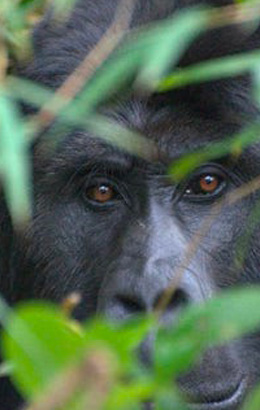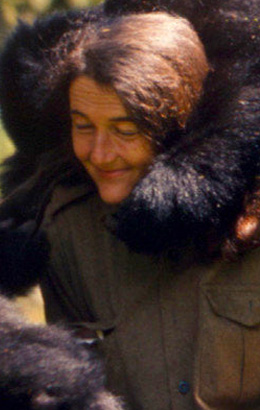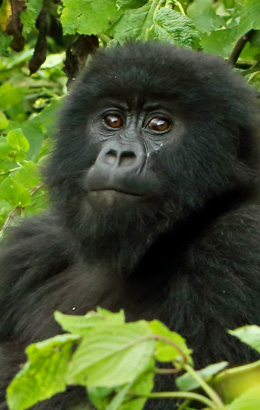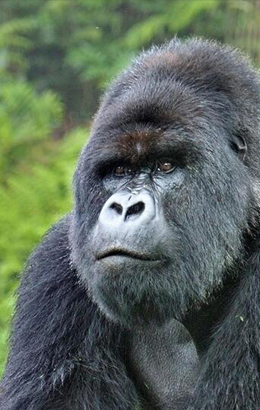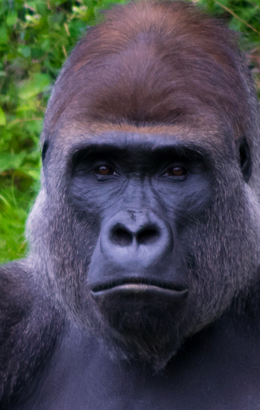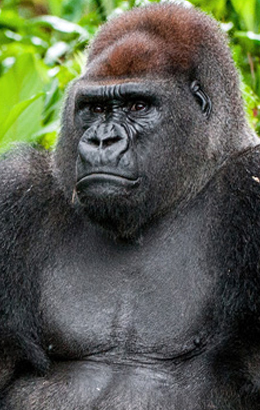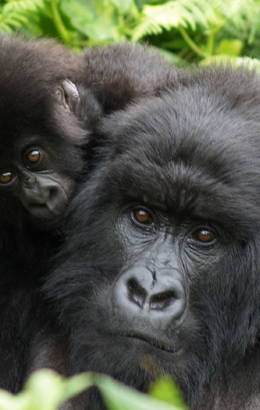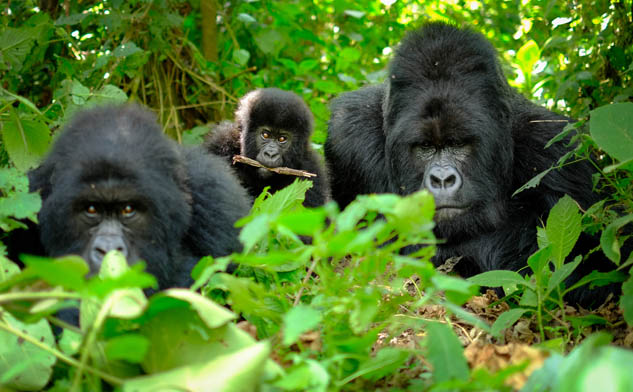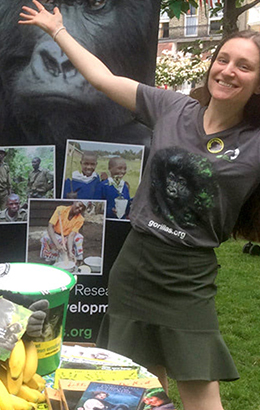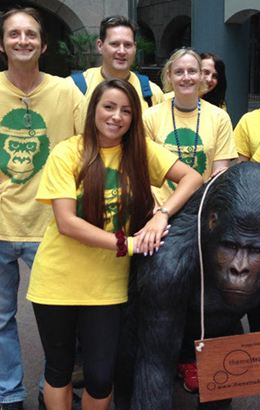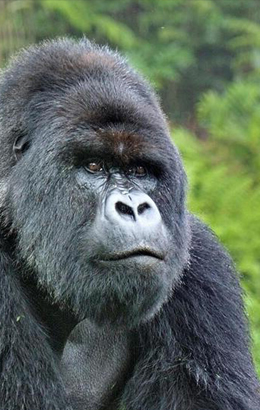The Gorilla Organization has been featured in National Geographic Traveller (UK), one of the world’s leading travel publications. The piece…
Gorillas’ medicinal plants knowhow could help humans
Gorillas in the wild have often been observed mixing up their regular diets and eating plants they know have health benefits. But new research suggests that humans can learn a lot from self-medicating great apes, and that gorillas may even hold the key to several medicinal breakthroughs.
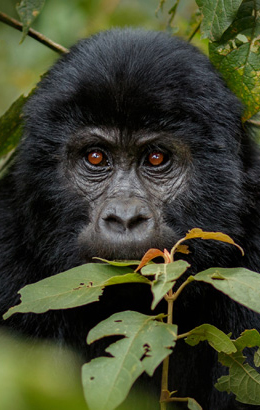
Scientists studying wild western lowland gorillas would see them munching on tree bark, alongside their regular diet of plant shoots, bamboo leaves, fruits and celery. Upon examination, the bark was found to be rich in antioxidants and antimicrobials, meaning that they could be used to develop treatments for a range of ailments humans suffer from. In particular, the plants showed signs of antibacterial activity against at least one multidrug-resistant strain of the bug, E. coli.
The trees and plants examined by the international team of botanists, included fromager tree (Ceiba pentandra), giant yellow mulberry (Myrianthus arboreus), African teak (Milicia excelsa) and fig trees (Ficus). All four of them are used in traditional medicine, both in Gabon where the study took place, and in other parts of Africa.
“This suggests that gorillas evolved to eat plants that benefit them, and highlights the huge gaps in our knowledge of the Central African rainforests,” said Dr Joanna Setchell, an anthropologist at the University of Durham, UK, who worked on the study with Gabonese scientists.
Gorilla Organization Director Jillian Miller adds: “We are only at the edge of our understanding of gorillas. Their relationship with their natural habitat is truly fascinating – which is why it’s so critical we safeguard both for future generations to study, appreciate and enjoy.”
The study was published in the journal PLOS ONE.
Make a difference – help today!
More News

Stanley Johnson visits The Gorilla Organization in Kisoro
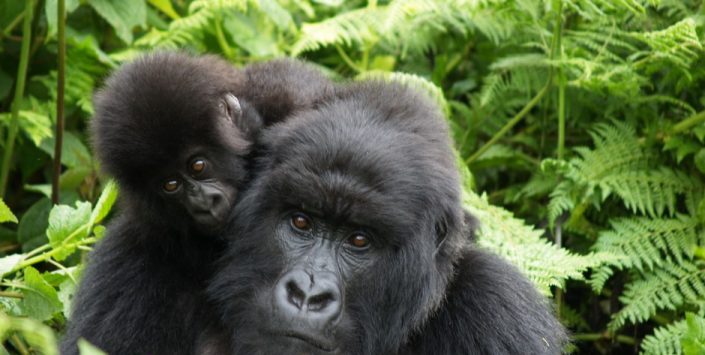
Inside Our Work: The Gorilla Organization Featured in National Geographic Traveller
The Gorilla Organization has been featured in National Geographic Traveller (UK), one of the world’s leading travel publications. The piece…
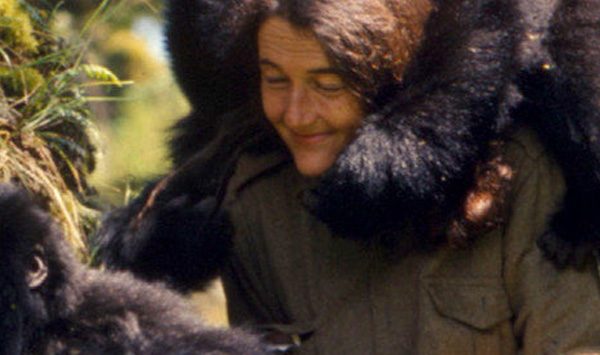
Celebrating the legacy of Dian Fossey, 40 years on
On 26 December 1985, the world lost one of the most influential figures in wildlife conservation. Forty years on, the…
